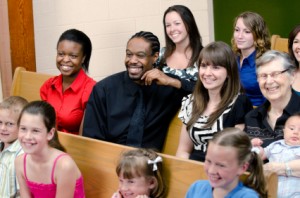
The Universal Life Church is rather unique in that it doesn’t put forth one set of practices or beliefs that members follow. Anyone can get ordained online and join the group, regardless of background or faith. The only tenet of the church dictates that ordained minister must strive to do that which is right, but that edict is open to interpretation. Some members of strict, orthodox religions may argue that this is a kind of relativism, and while it sounds good to say, it lacks teeth. That is to say that they think without specific guidelines on what types of actions are counted as right actions, the tenet of the Universal Life Church is unable to regulate behavior of willing participants; they say it lacks substance.
We want to unpack this notion and explore why it does give direction to those who get ordained online in a meaningful sense. The first charge to address is that this is relativism. Relativism is the idea that different things are right for different people at different times. The traditional problem with this is that without an objective perspective, nothing is to stop an individual from honestly believing that a given action is wrong, even if most everyone else thinks it is.
There are a few reasons this fails to apply to the doctrine of the Universal Life Church. The first is that, in order to make a point, the dissenter has pushed the situation to a point where such discussion isn’t relevant. Here, they are imagining an individual will appeal to relativism to say something like stealing or killing is right. If said individual indeed believes these actions to be morally permissible, an orthodox religion won’t suddenly solve his problems; we are discussing an unfit moral agent, so societal or religious rules don’t address what is wrong in his thought-process.
Secondly, this also supposes that the Universal Life Church isn’t providing an objective perspective, but rather inviting many subjective perspectives on morality. This isn’t the case. Another way to cash out the view of the church is that the individual freedom to practice one’s faith is paramount, but cannot infringe on the liberties of anyone else. This is influenced by the humbling fact that each of us is imperfect, and many people have equally strong religious beliefs that differ to the extent that they both can’t be true at the same time. The orthodox dissenter has no tool by which he can say he is right and others are wrong other than individual perception – something not unique to his position.
The best objection to the ULC edict is that it doesn’t seem to guide willing participants, who got ordained online and seek to learn and grow spiritually. Some would argue that there’s nothing about this to mentally digest that spurs self-improvement. While the ULC makes training materials available for ministers to perform a wedding, start a church, become a pastor, and explore their spirituality, it doesn’t require you to do these things to get ordained. Those hungry for knowledge will seek it, those called to the ministry for other reasons are free to practice undisturbed. The Universal Life Church is about freedom – freedom of religion, individual liberty, and freedom of thought. If these values are important to you, get ordained and join this truly universal church.

